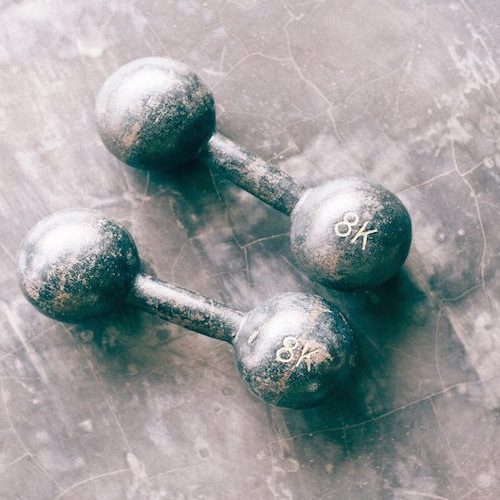 Have questions about blood sugar and weight loss? Arlene has answers.
Have questions about blood sugar and weight loss? Arlene has answers.
How will skipping meals affect my body? Is it unhealthy? Will it help me lose weight?
Skipping meals is often seen as an attractive way to lose weight. Unfortunately, the side effects of skipping meals are much more serious than any potential benefits. Some consequences of skipping meals can include promoting the development of diabetes, inadequate nutrition, and drastically altering the way that your body digests food.
One of the most important reasons that skipping meals is unhealthy is due to the effect this has on your blood sugar. When you eat a meal, your body breaks up the food. Some of this food is stored as fat, while other parts of it enter your bloodstream as sugar, and work to provide you with energy throughout the day. When you skip a meal, your blood sugar drops dramatically. This not only can make you feel sluggish and tired, but it can also wreak havoc with insulin in your body. If you chronically skip meals, you can be setting yourself up for the development of diabetes later in life.
Another important reason why skipping meals is unhealthy is due to the fact that you are more than likely not receiving adequate nutrition. Eating a diet that is rich in fruits, vegetables, whole grains, and lean meats helps not only to ensure that your body functions properly but can also help in the treatment and prevention of a number of serious conditions. Some conditions that can be improved with proper nutrition include cardiovascular disease, strokes, and some types of cancer. You may believe that you can skip meals and still achieve optimal nutrition by supplementing your diet with multivitamins. And while multivitamins do have their place, research has shown that these pills aren’t as effective as real food at providing your body with what it needs. For good health, try to eat as naturally as possible.
You typically skip meals for two main reasons. One, you are ultra-busy and don’t have enough time to grab a quick snack, or two, you are trying to lose weight. If you are one of the people who are trying to lose weight, you may be actually sabotaging yourself by skipping meals. When you eat, your metabolism, which is one of your body’s functions, works to break the food down into smaller, usable parts. When you skip a meal, your metabolism has nothing to do. In a way, your metabolism is like a muscle. You must use it, or you will “lose it.” When your metabolism does not have to work to break down food, it begins to slow down. Then, the next time you do actually eat something, your metabolism is not able to break the food down as quickly, and as a result, the food is stored as fat. Therefore, in order to maintain a healthy weight (or even lose weight), it is essential that you eat regularly throughout the day. Recent research has found that five to seven small, regularly timed meals eaten over the course of a day work best when trying to maintain a healthy weight.
I have been on a 1500-calorie diet for the past six months and work out hard four times a week, but still cannot seem to lose weight. Can you give me some advice?
Are you sure you have been subsisting on a diet of broiled fish, carrot sticks and low-fat yoghurt? Did you forget to count the fistful of M&Ms you grabbed from your child’s packet or that handful of potato chips you munched on during the weekend? Habitual dieters who claim they cannot pare off the kilos can consume as much as an additional 1000 calories without even realising it. It is very difficult to assess calories: you can be of two to three hundred at every meal, which really adds up. Part of the problem is underestimating portion sizes. Many people guess what a cup of pasta is without actually measuring it, so they end up eating twice as much. Or they think they are being good by nibbling on only a handful of candy, when, in reality, they are consuming several hundred. Instead of guessing, weigh or measure food to develop a realistic idea of portion sizes and read food labels for specific serving size information. Keep in mind these guidelines:
• A serving of meat, chicken or fish should be the size of a deck of cards.
• Pasta and rice should be the size of one cupped handful (cooked).
• Vegetables are two cupped handfuls.
• The tip of your thumb equals one teaspoon (helpful when calculating a serving of fat.
Is there any truth behind not eating protein with carbohydrates, and only eating fruit in the morning till midday, and also not eating carbohydrates at night? I find it so difficult to stick to all this advice – it makes me diet one minute and binges the next. Either I am being strict or I am eating everything. What is your opinion of all this?
When you read the diet books advising food combining they seem to make a lot of sense. However, look a little deeper, almost every food contains a mixture of nutritional components, consequently, it is impossible to avoid combining proteins and carbohydrates. Different enzymes in the gut are responsible for digesting the different food groups – it is a perfectly designed system to deal with the “mixed” nature of food. Many people are convinced that it is the food combining that has made them lose weight and feel more energetic when all they have done is replace a high-fat breakfast of fried eggs, bacon and buttered toast with a fresh fruit breakfast!
I have lost a lot of weight in the last 18 months by eating right and exercising three times a week, but I still need to lose 5kg. The trouble is I get tired that it is hard to stay motivated. Any ideas to help get my energy back?
I can understand that you feel frustrated, but you must not consider your weight loss as a diet, rather as a change of lifestyle. Your weight will then gradually drop until you attain your goal weight. You cannot remain motivated forever, you actually have to live. If you are tired you must look at your food intake. Perhaps your iron intake is insufficient. Your doctor should investigate your continual fatigue. So what is going on? Since I do not know how hard you are working out or what you are eating, I can only speculate to why you are pooped. Fatigue can be a symptom of numerous things such as overtraining, irregular sleep patterns, feeling depressed or incorrect eating habits. Your diet may be too low in calories, which can sap your strength, especially when you are working out regularly. Add some lean red meat to your diet and be sure you are getting plenty of fruit and vegetables, and that you drink enough fluids.
I know drinking water is a good idea but does the temperature of the water matter? I am trying to lose weight and have heard that cold water is best.
Let us call that an old wives tale. It is good to drink the water of course, but forget about the temperature. While your body does use up a few extra calories to warm cold water to body temperature, the amount is negligible. Drinking ice-cold water to drop kilos is like sitting in a chilly room shivering to lose weight. Water only helps you lose weight by making you feel full and therefore assisting you in consuming fewer calories.
Why do I get so ravenous before I get my period? I can eat anything at this time and always break my diet, which makes me so depressed especially because I have been going so well all month.
Progesterone and oestrogen levels peak at this time causing blood sugar levels to drop. This increases hunger and cravings for some time like chocolate, bread, cakes and biscuits. Levels of serotonin, a mood chemical, also drop, triggering a craving for sweet biscuits, cakes and chocolates.
Why do I get thirsty after coffee?
Coffee is a diuretic, which means that it causes your body to excrete fluid. When fluid levels in the body drop, receptor cells in our brain compensate for the loss by triggering thirst.
Is it true that your stomach shrinks when you go on a diet for a long time?
The capacity of the stomach of an overweight or obese person has been shown to be much larger than that of a lean person. There is a popular belief that the stomach “shrinks” when a person goes on a diet, but there is no scientific evidence of this. However, it has been demonstrated that there is a reduction in gastric capacity after a long-term restricted diet.
How intensely should I exercise? When I walk too fast I really do not enjoy it. I am trying to walk four times a week for 45 minutes. At this time I cover about 4km. Is this enough?
To maintain any regime, you must enjoy it; otherwise, you will eventually give it up. The simplest method of measuring whether your exercise intensity is correct is by “the talk test”. If you can talk while you are exercising without gasping for breath, then the level you are working at is about right for you. If you cannot talk as you are puffing and panting, you should reduce your effort until you can talk.






